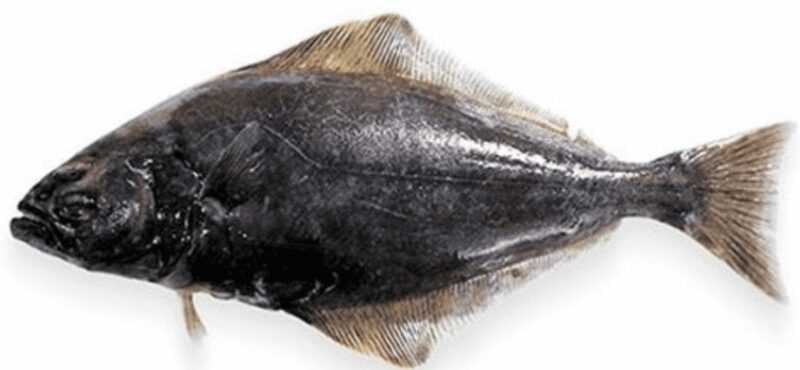Benefits of halibut, and information on the different nutritional properties of a white fish also known by the name of halibut. Discover its nutritional qualities.

The Halibut is a white fish that is also commonly known as the Halibut (Halibut Atlantic). It belongs to the Pleuronectidae family, in whose family we can find other fish such as the flounder.
It lives in the waters of the Atlantic, and although there are different species (such as the black halibut or the Pacific halibut), the most consumed is called the common halibut.
Unlike other fish, the truth is that there is no one month of season – or better period – for halibut, so that we can find it practically all year round in fishmongers and markets.
Regarding its external appearance and characteristics, it has an elongated and oval-shaped body, which at times can be reminiscent of sole (in fact, many people can even confuse it).
Nutritional properties of halibut
As we indicated at the beginning of this note, halibut is a white fish (a group of foods that are also known by the name of lean fish), which means that its fat content is really low. In fact, 100 grams of halibut provides 1.9 fat and only 100 calories.
Halibut, in addition to being low in fat and calories, is extremely rich in proteins of high biological value, providing 21.5 grams of good quality protein.
Regarding its vitamin content, it provides vitamin E and different nutrients from the complex of vitamins of group B, such as vitamin B3, B6 and B9 (popularly known as folic acid).
It also provides minerals, although in smaller numbers and quantities than other fish; on this occasion, we can only highlight phosphorus and potassium.
| Calories | 103 kcal | ||
| Protein | 21.5 g | ||
| Carbohydrates | 0.2 g | ||
| Total fat | 1.9 g | ||
| Vitamins | Minerals | ||
| Vitamin B3 | 9.8 mg | Match | 200 mg |
| Vitamin B6 | 0.4 mg | Potassium | 410 mg |
| Vitamin B9 | 9 mcg | ||
Halibut benefits
From a nutritional point of view, halibut is an ideal fish in children’s nutrition because it is very similar to sole, which becomes precisely one of the ideal fish most consumed by children and very helpful by mothers, thanks to its certainly mild flavor and texture.
As we indicated in the section dedicated to the different nutritional properties of halibut, halibut is a fish very low in fat and therefore in calories, hence it is one of the foods recommended by dietitians on low-calorie diets that pursue the goal of losing weight and lose weight.
Halibut is a fish that, in addition to being delicious, is extremely easy to digest, so its consumption is recommended for people with digestive and stomach problems.
Among its vitamins we can find folic acid, essential for the mother who wants to get pregnant, but not only during pregnancy but also before pregnancy (since it prevents defects in the placenta, and reduces the risk of defects in the brain and spine vertebral in the fetus). In addition, it also provides interesting amounts of vitamin B3 and B6.
Regarding its mineral content, it provides above all phosphorus and potassium, essential for the proper functioning of our body.































